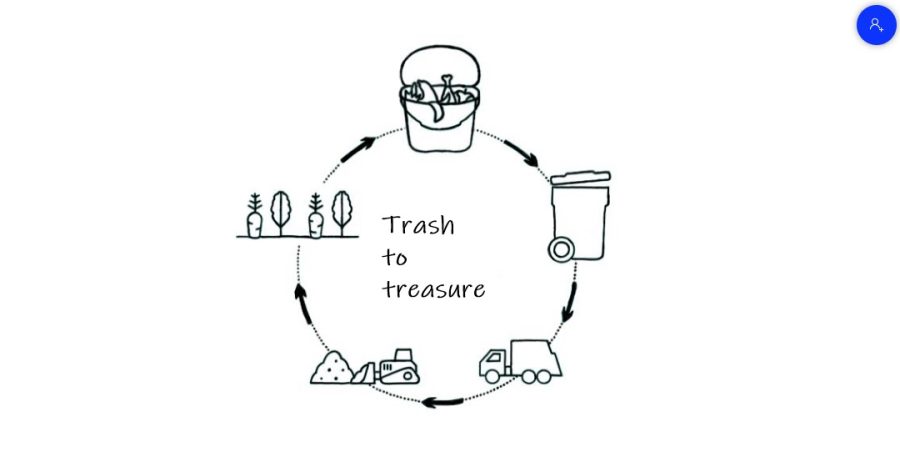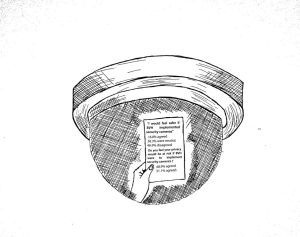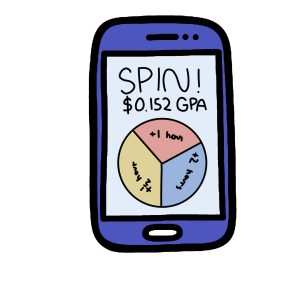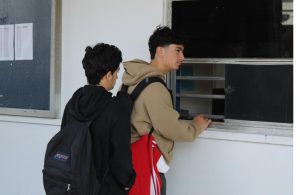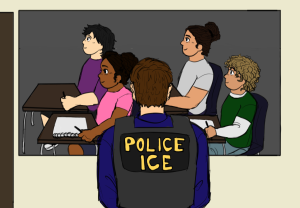Harvest the benefits of compost
The practice of harvesting and composting fosters a cycle the benefits the environment. As opposed to a cycle that damages the environment.
December 16, 2021
Composting has the potential to benefit the environment and people all around the world. It is a combination of decaying nutrient-rich soil and is naturally made using oxygen, bacteria, water, and organic materials. According to The Gardening Channel, Compost is used to fertilize and condition the soil.
“Compost can be used to remediate soils contaminated by the hazardous waste in a cost-effective manner. It can provide cost savings over conventional soil, water, and air pollution remediation technologies, where applicable. It can also enhance water retention in soils. Finally, it provides carbon sequestration,” United States Environmental Protection Agency (EPA) said.
Composting can benefit student lives and how they develop as individuals. They begin teaching pupils how to compost at a young age, which connects them with the environment and their food source. It also connects them with the animals and insects who visit and aid in the growth of their plants.
“School gardening affects eating habits. Research shows that children are more likely to eat vegetables they have grown,” Pennington said. “Many garden programs include nutritional education, shown to improve attitudes toward vegetables. Children become more likely to eat vegetables, even as snacks, and to ask family members to buy vegetables for them. These healthy habits continue into adulthood.”
For instance, in Orange High School (OHS), the 2019 Agriculture Outreach program provided hands-on farming experience to eight students from the Special Education Department. Students grew vegetables from seeds and served them as lunch after harvest, which took three months.
“My students truly benefited from this experience as many of them did not understand where their food comes from and how it is grown and harvested. It was also exciting to see how willing they were to eat new vegetables that they previously had not tried or were unwilling to eat,” OHS Special Education teacher Damian Paez said.
Waste in landfills produce greenhouse gases, methane and other harmful gases like ammonia, sulfides and carbon dioxide. According to the New York State Department of Health, gases cause reported health complaints such as eye, throat and lung irritation, nausea, headache and other symptoms. Although other chemicals may have been present in the air, many of these effects are consistent with exposure to hydrogen sulfide. The Sustainable Composting Research at Princeton states that by composting, emissions can be reduced by more than 50 percent of carbon dioxide-equivalent greenhouse gas emissions, for a total of 2.1 gigatons between the year 2020 and 2050.
“Composting is amazing. We [Bonita Vista High (BVH) Advanced Placement Environmental Science and International Baccalaureate Biology teacher Jennifer Ekstein and her AP ESS students] are doing an experiment—synthetic vs organic fertilizers. Our organic fertilizers are more healthy, they [the plants] are growing much faster and are heavier so they tend to not end up in our waterways,” Ekstein said.
Unlike other schools within Sweetwater Union High School District (SUHSD), BVH does not have a harvesting or composting program. Having a composting or harvesting program at BVH would allow students to be involved in their community. This involvement can bring students to appreciate the food they spent their time harvesting and growing.
“They [BVH] should definitely have a gardening program. There are programs in place being piloted [in the beginning process] that will give our students more options for healthier food choices,” Ekstein said.
According to Ekstein, Chula Vista Highschool has its own gardens which allows the cafeteria to serve students nutritious food using the harvest crops. To a similar extent, BVH also has vermiculture — a decomposition process using various species of worms— where the vermiculture farm workers supply lettuce to some of the schools in SUHSD.
“There’s so much food that is going into the waste stream. We can change [the excessive waste] to a recyclable effort which is going to make more food,” Director of Nutrition of SUHSD Eric Span said.
To launch a composting program at BVH, Span wants to meet the BVH principal Roman Del Rosario and Green Team president Bibiana Martinez. Span adds that Green Team should include some underclassmen so that the club may be passed on to the future classes of BVH.
Students can learn more about composting by doing research and volunteering in their communities to help compost. Implementing composting programs would be beneficial to schools and the environment, which is why BVH should adopt this practice today.
“Let’s get it [starting a composting program] going. It’s nothing that we can’t accomplish and I’m here to support it,” Span said.

